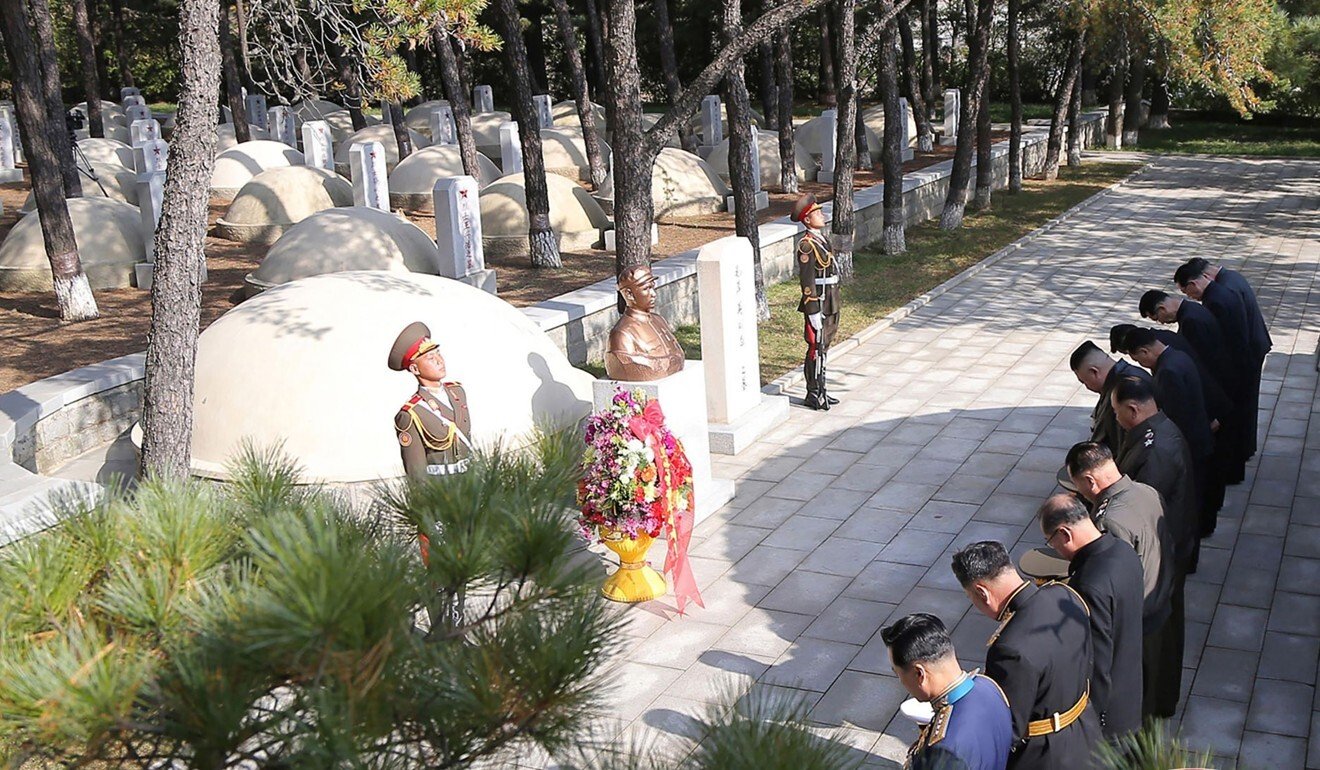
North Korea’s Kim Jong-un honours Chinese war dead as both sides highlight strong ties
- Beijing and Pyongyang are using the Korean war anniversary to strengthen ties, amid worsening US-China relations and the upcoming US presidential election
- This comes as US Secretary of State Mike Pompeo said an end-of-war declaration cannot come before the North’s denuclearisation
“North Korea knows well the US would not condone its nuclear weapons and it is bracing itself for tensions following the US presidential poll, no matter who wins, and it needs China to have its back,” said Go Myung-hyun at the Asan Institute for Policy Studies in Seoul.
The visit to the soldiers’ tombs “highlighted the traditional alliance with China”, Go said.
Have US-China rivalry and Covid-19 tipped the balance of power in Asia?
Kim lauded the contribution of the Chinese People’s Volunteers (CPV) in the “great victory in the Fatherland Liberation War” which linked the two countries’ destinies as one, according to the Korean Central News Agency (KCNA).
He then laid a floral basket at the grave of Mao Anying, the son of late Chinese leader Mao Zedong, who was among those killed in action.
A floral basket was also sent to the Friendship Tower in Pyongyang, a monument symbolising the friendly ties between the two countries.
More than 150,000 Chinese soldiers were killed or are missing and 240,000 were wounded, while about 2 million Koreans, including soldiers and civilians, died or are missing. Almost 40,000 Americans died in action in Korea, and more than 100,000 were wounded.

US calls North Korea’s new ICBM missiles ‘disappointing’
Declaring a formal end to the Korean war would “obviously” be part of efforts to denuclearise the Korean peninsula, Pompeo said on Wednesday, calling for a return to denuclearisation talks.
“We continue to believe that there’s an important, good outcome for global peace and stability and for the North Korean people, and we hope that we can get back to the table and begin to have those discussions in a serious way and would ultimately lead to what the president of South Korea was speaking to,” he said.

“The victory in the War to Resist US Aggression and Aid Korea was a victory of justice, a victory of peace and a victory of the people,” said Xi, using the Chinese name for the conflict.
He added that the spirit forged during the war “will inspire the Chinese people and the Chinese nation to overcome all difficulties and obstacles, and prevail over all enemies”.
Xi Jinping invokes China’s ‘Korean war spirit’ as 70th anniversary approaches
“China feels it necessary to bolster its security environment by strengthening ties with the North, which is the only country in the region that is away from the US policy of seeking to encircle it in the region,” Go said.
On Friday, Xi will attend a meeting to commemorate the 70th anniversary and deliver “an important speech” at the meeting at the Great Hall of the People in Beijing, according to Xinhua.
For China the Korean war is a reminder of strength against the US
At the same time, China is being careful not to harm its diplomatic relations with South Korea, which were formalised in 1992.
Chinese State Councillor and Minister of National Defence Wei Fenghe on Wednesday held telephonic talks with Suh Wook, South Korea’s defence minister.
Suh asked Beijing to play a “constructive role” in achieving peace and stability on the peninsula, while Wei stressed the need to make joint efforts toward that goal and “deepen exchanges and cooperation in defence and other fields”, according to Xinhua.

